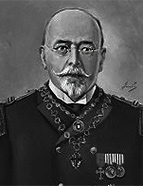

Almeida d'Eça sought to "settle once and for all" the historiographical problem related to Fernão Magalhães, which he regarded as a problem of "historical psychology"(Fernão de Magalhães, p. 4). In a text presented in the form of a dialogue, based on well-known sources of the time — Jerónimo Osório, João de Barros, Gaspar Correia, Faria e Castro, Luís de Camões — he stated that "only three names from the grandest epic of the Portuguese Discoveries" accompanied Fernão de Magalhães: Prince Henry the Navigator, Bartolomeu Dias, and Vasco da Gama.
Of these three "heroes" of the Discoveries, Magalhães would have been "the greatest sailor” (Ibidem, pp.10-11). While defending the heroism of certain figures and the glories achieved by Portugal, Almeida d'Eça provided his students with "synoptic and bibliographical tables" and emphasised the importance of chronologies. He increasingly focused on technical issues related to navigation, cartography, and nautical instruments. In a strongly positivist view, which was dominant at the time, he valued the role reserved for documents, handwritten diplomas, and primary sources, which were key to correcting errors and reconstructing the events of the past. However, the lack of documents should not lead to the denial of facts, an idea already defended by the Viscount of Santarém (Viagens e Descobrimentos Marítimos, p.40). Diplomatic science, which rescued documents with historical and evidential value from the dust of the archives, emerged as the instrument that verified, rectified, and certified dates, assertions, and analyses, contributing to an understanding of past eras. Aimed at a wider audience, Almeida d'Eça did not believe that this scientific validation was necessary (Ibidem, p. 42). Like Alexandre Herculano, who proposed that historians should mobilise all knowledge that aids research, he noted that "the processes of writing history have improved, but this is why it has become more challenging to write it well. Today, the historian must be a philologist, ethnologist, geographer, archaeologist, economist, and much more; above all, they must be a consummate sociologist, and they are required to be absolutely impartial, almost indifferent" (A abertura dos porto ..., p.10).
